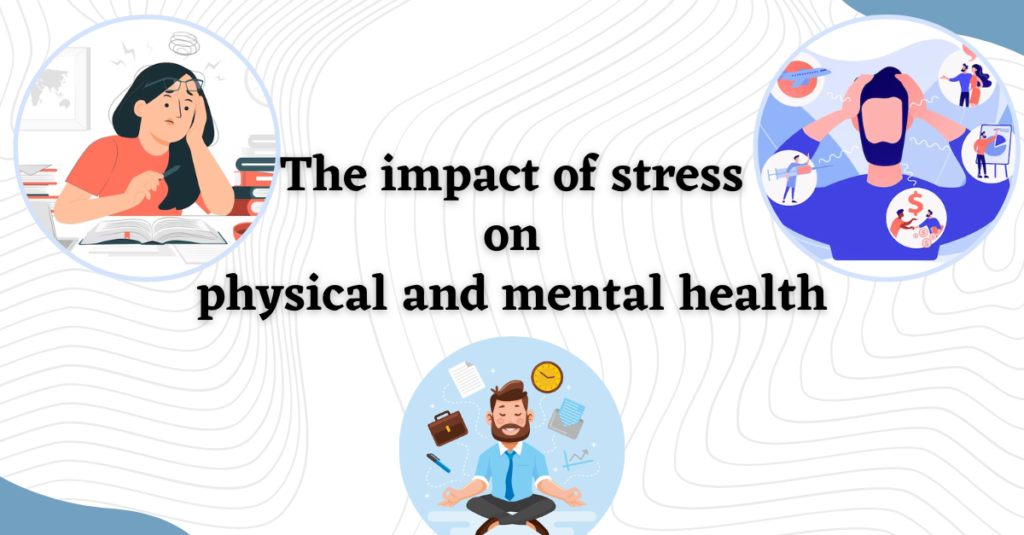If you see the present generation; you will find people are always busy. Everyone is running for some unsatisfied goal without knowing what they actually want in life. And as a result, stress has become an inseparable part of our life. A hectic lifestyle along with erratic sleep patterns and pressure from personal and professional life, create stressful situations that are quite tough to control.
Unfortunately, stress does not only harm our mental well-being; it is harmful to our physical health as well. And more surprisingly, many people are not realizing that their physical and mental health are under stress. The occasional headache they blame may be a sign of rising stress levels. Eventually, it will lead to increased insomnia and decreased productivity.
Ritika Aggarwal Mehta, consultant psychologist, at Jaslok Hospital and Research Center said; “Stress is a response to a threat in any given situation. In other words, it triggers your body’s ‘fight-or-flight’ response. This stress response helps protect the body in an emergency by preparing you to react quickly to the situation. However, when this stress response fires continuously and stress levels remain elevated over a long period of time, then this chronic stress can put your physical and mental wellbeing at risk.”
Impact of Stress on Physical Health:
Generally, when people are under stress, they tend to breathe fast in order to distribute blood carrying oxygen to the body. Many people feel heaviness on their chest and difficulty in breathing that are leading to anxiety.
Due to stress; the heart pumps blood faster to fight off the trigger or protect from it resulting in high blood pressure or even a heart attack.
Stress will increase the chances of ulcers, cramps, acid reflux and stomach aches, constipation, diarrhea, bloating, and vomiting.
During a stressful period, the muscles tend to tighten to protect from injury. When the stress is chronic; those muscles don’t get adequate time to relax which finally cause headache and generalized body pain. People who are under constant stress lose their ability to fight against infections.
Under stress, the body used to produce more glucose to meet the requirement of extra energy. Bruxism or what we call teeth grinding is another cause of stress that will hamper dental health. Prolonged stress can lead to a decrease in testosterone levels, potentially impacting sperm production and causing issues such as erectile dysfunction or impotence. Additionally, chronic stress may increase the likelihood of infections in the reproductive organs.
Impact of Stress on Mental Health:
People who are under stress find it difficult to fall asleep. Often chronic stress is the main result of insomnia.
Due to stress, appetite can be affected as it either increase or decrease drastically.
Experiencing stress can make an individual feel overwhelmed, which in turn can contribute to a sense of losing control. This, in turn, can exacerbate feelings of stress.
What are the effects of stress on lifestyle?
Stress can have various effects on an individual’s cognitive abilities, such as attention and concentration, which can result in a long time to complete tasks. It can also negatively impact memory, making it harder to create short-term memories and transfer them into long-term storage, ultimately hindering the ability to retain information and learn. In addition, the organization of information can become more challenging due to racing thoughts that interfere with one’s thought process. Finally, stress may also impair judgment.
How to Manage Stress?
In case, you have stress symptoms; you need to take fast action to manage it for the betterment of your mental and physical health. You can follow these stress management strategies that will immensely help you to get out of the situation:
1. Regular physical activities
2. Relaxation techniques practice like deep breathing, yoga practice, free hand exercise, meditation, tai chi, or massage
3. Maintain the right sense of humor
4. Quality time spent with family and friends
5. Keep time for hobbies
Strive to adopt active methods for managing your stress. Passive methods, such as watching TV, surfing the internet, or playing video games, may provide temporary relaxation, but they can contribute to long-term stress.
Additionally, make sure to prioritize adequate sleep and a balanced, nutritious diet. Avoid using tobacco or consuming excessive amounts of caffeine or alcohol, and refrain from using illegal substances.
When should you seek help?
If you are unsure whether stress is causing your symptoms or if you have already attempted to manage your stress but your symptoms persist, it is advisable to seek medical advice from your doctor. Your healthcare provider may want to investigate potential underlying causes. Alternatively, consider seeking support from a qualified counselor or therapist, who can assist you in identifying the sources of your stress and teach you new coping strategies.
Furthermore, seek immediate emergency assistance if you experience chest pain, particularly when accompanied by shortness of breath, jaw or back pain, pain radiating to the shoulder and arm, sweating, dizziness, or nausea. These could be warning signs of a heart attack and not merely stress-related symptoms.
